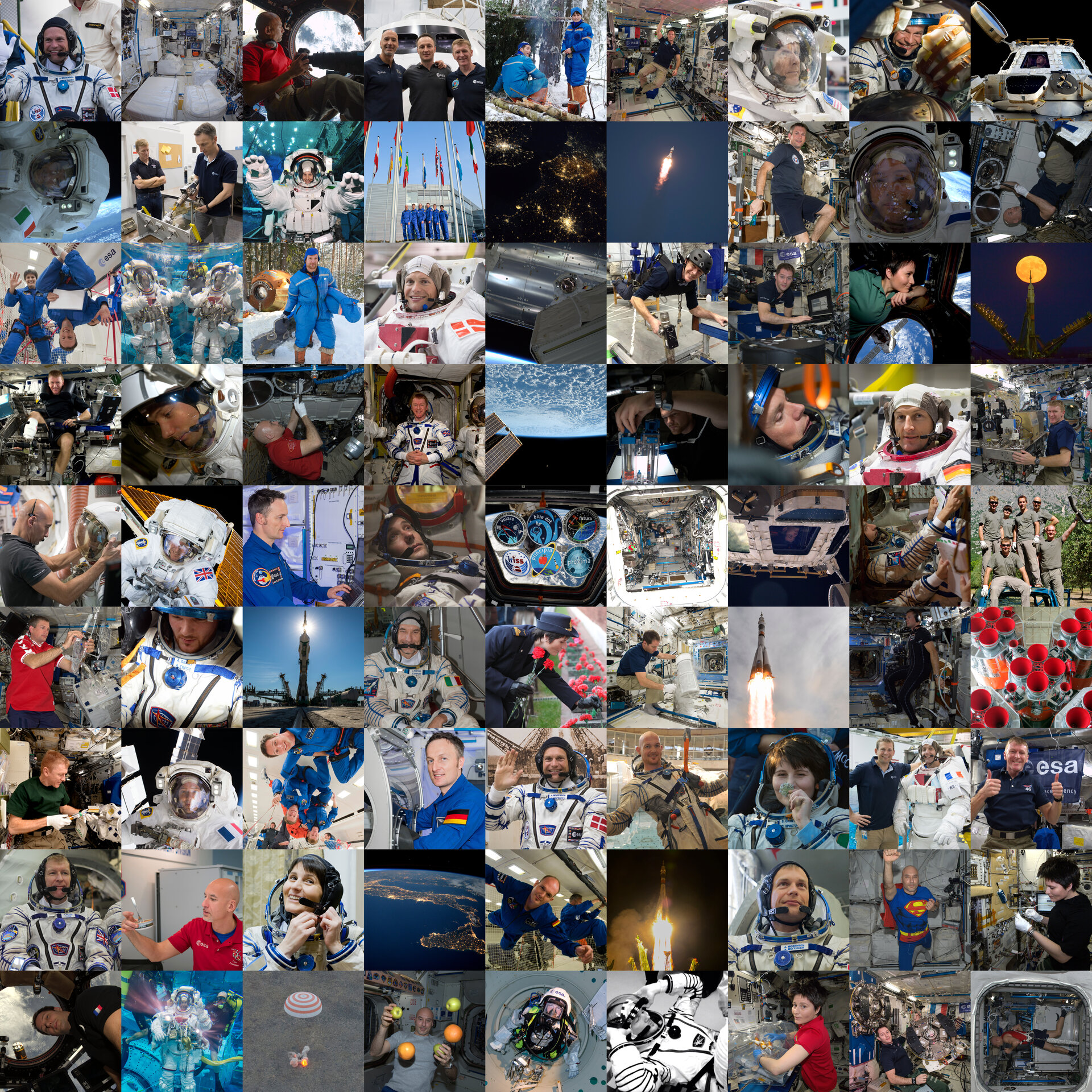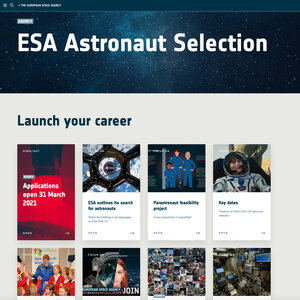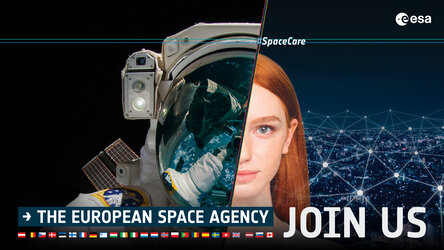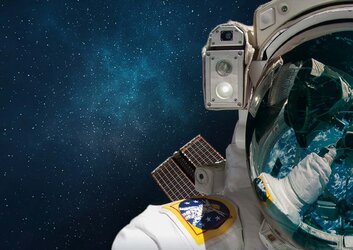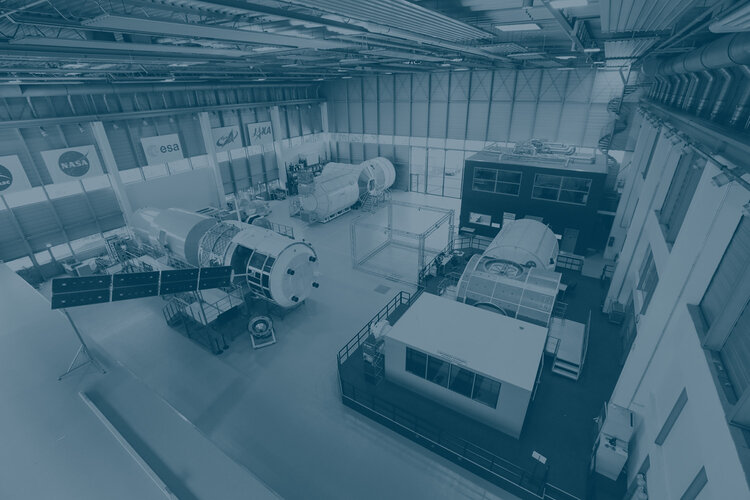Attributes of an astronaut
The role of an ESA astronaut is constantly evolving. As we travel beyond the International Space Station and go forward to the Moon, astronauts must be ready to adapt to new challenges in exploration far away from home.
At ESA, diversity is an asset. Our team is made up of many different people from a range of cultural, personal and professional backgrounds. Rather than excelling in any one area, it is important for astronauts to be well-rounded team players who demonstrate competence across a wide range of tasks and disciplines.
However, there are some basic requirements all aspiring ESA space travellers must fulfil. Some of these requirements are outlined below. We recommend viewing the FAQs alongside the Astronaut Applicant Handbook and vacancy notices for full details.
Basic requirements:
- Citizenship of an ESA member state or associated member state
- Minimum of a Master’s degree from a recognised academic institution in natural sciences, medicine, engineering or mathematics/computer sciences. A PhD or equivalent degree or additional Master’s degrees in the aforementioned subject areas are considered assets. A degree as Experimental Test Pilot and/or Test Engineer from an official Experimental Test Pilot School is also accepted. Please see the FAQs and vacancy notices (available from 31 March) for more detailed information.
- At least three years of professional experience after graduation. This could include working in a lab, conducting research in the field or working in a hospital.
- Fluent in written and spoken English. Good knowledge of another foreign language and any other additional language is a plus.
- Strong motivation and ability to cope with irregular working hours, frequent travel, and long absences from home, family and regular social life.
- Flexible with regard to place of work.
- Able to remain calm under pressure.
- Physically and mentally fit and healthy.
- Willing to participate in life science experiments.
- Excellent communicator, able to act as an advocate for ESA.
All applicants to the astronaut vacancy must also hold a medical certificate issued by an aviation medical examiner that shows they are medically certified for a private pilot licence (PPL) or higher (e.g. commercial pilot licence).
All applicants to the astronaut with physical disabilities vacancy must provide a medical certificate issued in English by any physician stating that, if not for your disability, you would comply with the medical requirements of the European Part-MED, Class 2 (Private Pilot) medical certificate. These requirements are available here.
Applicants are not required to hold a PPL but astronauts need to be medically fit to exercise the duties of a private pilot.
We suggest arranging to obtain the required medical certificate before or as soon as possible after applications open on 31 March 2021 as your medical certificate must be uploaded with your application for your application to be considered.
The role of astronaut is physically and mentally demanding. To ensure each recruited astronaut can fulfil at least two missions during their employment with ESA prior to retirement, ESA is obliged to set a maximum age limit of 50 years. This means that applications from anybody older than 50 at the time of applying cannot be taken further in the selection process.
Find out more about the requirements in the Astronaut Applicant Handbook.
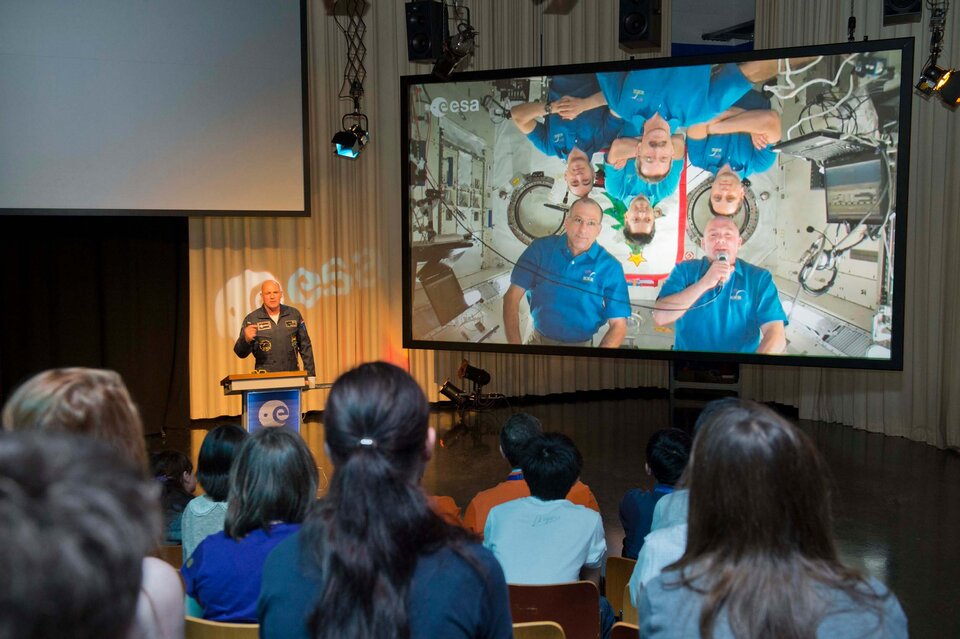
Though aviation experience can be beneficial and all applicants must also hold a medical certificate issued by an aviation medical examiner that shows they are medically certified for a private pilot licence (PPL) or higher (e.g. commercial pilot licence) you do not have to be a pilot or have a military background to become an ESA astronaut.
What you do need to be is patient and committed – the majority of an astronaut’s time is spent on the ground either in training or in operational roles supporting ESA’s work in space.
You must also be good at communicating what you do. Astronauts are ambassadors for ESA and space exploration in Europe and beyond. Alongside their operational duties, astronauts are often required to speak with young people, media, industry and members of the public about their experiences and ESA’s activities.
Find out more about our Class of 2009 astronauts, their backgrounds and experiences on the Exploration blog.


